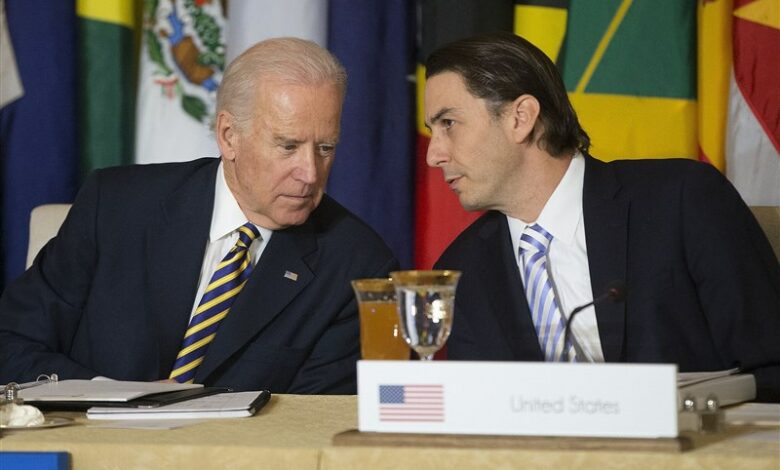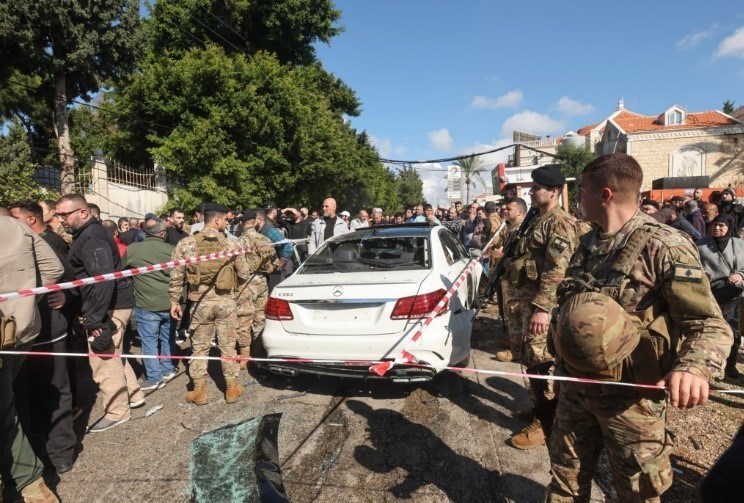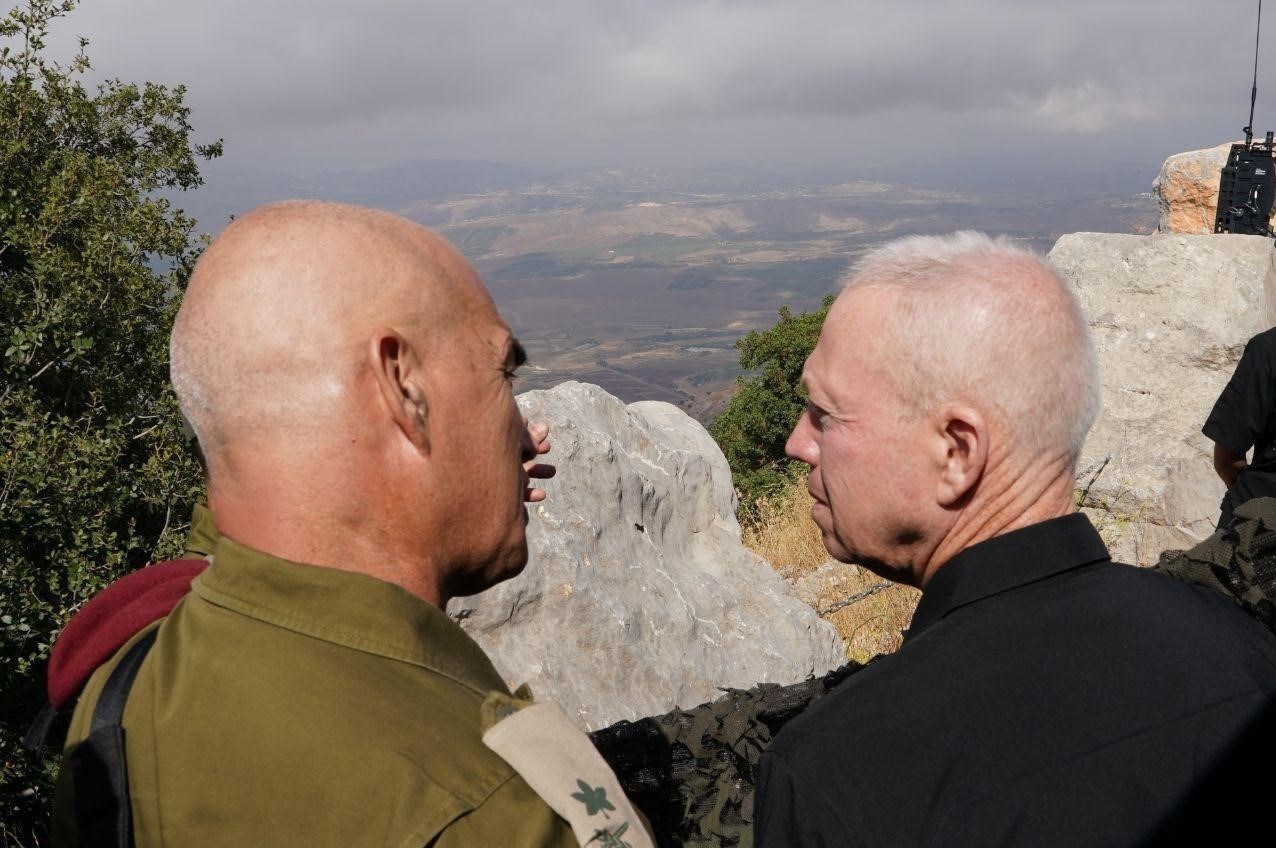Hochstein’s attempt to save Israel from the devastating blows of Hezbollah

| While the level of conflicts in the Gaza Strip has decreased slightly with the beginning of Ramadan, Netanyahu's cabinet intends to stoke the fire of conflicts in the northern front and by expanding the scope of its attacks to the civilian areas of southern Lebanon, to guarantee its survival in power. |
According to the international group Tasnim news agency, after a break of several weeks, representative Amos Hochstein once again The Biden government went to Beirut to channel indirect negotiations between the Lebanese resistance and the Zionist regime. While many eyes are focused on the ceasefire talks in Cairo and the possible announcement time, some outside observers are worried about the opening of a new front on the border of occupied Palestine and Lebanon. He said that declaring a ceasefire in Gaza does not necessarily mean the cessation of conflicts on the Lebanese border. The logistical movements and offensive actions of the Israeli army against the strategic bases of the resistance have increased speculations about the possibility of the regime’s attack on southern Lebanon. On the other side, the Lebanese resistance has also announced that (based on the strategy of uniting the fields) with the cessation of the war in the Gaza strip, Hezbollah will also cease military operations in the northern front.
According to Al Jazeera report, Najib Miqati, the Prime Minister of Lebanon announced that he had received Hochstein’s proposal to resolve the conflict between the Zionist regime and Lebanon. According to al-Arabiya report, this Lebanese statesman believes that the return of long-term stability to the southern borders requires Israel to withdraw from the Lebanese border and end the occupation of Lebanese lands by the Zionist regime.
During the last five months, Hezbollah, in line with the interest of this Arab country and the resistance groups based in Gaza, decided to start a controlled conflict with the regime and not allow the war to spread inside Lebanon. Martyrdom of more than 245 Hezbollah fighters on the way to defend their Jerusalem is a testimony of the commitment of the Lebanese resistance to defend Gaza and at the same time protect the interests of the Lebanese nation-state.
In his proposed plan, Hockstein demanded that the Hezbollah forces withdraw to a depth of 8 kilometers from the common border and that the Lebanese Army and the United Nations forces be stationed in this area. On the other hand, Washington will promise that the Israeli army will not launch a ground attack on southern Lebanon. Tel Aviv is under investigation while Amos Hochstein met with Yoav Gallant, the Israeli Minister of War, once again in two-sided statements about the diplomatic and military options being on the table. Gallant, as a member of the National Emergency Cabinet, claimed that Tel Aviv is committed to political negotiations to reach an agreement on the northern borders, but Hezbollah’s actions bring this regime closer to the point of deciding to attack Lebanon.
Such statements are made by this high-ranking Zionist official while the range of Israeli attacks deep into Lebanese soil has increased dramatically in recent weeks. Nabatieh, Saida and Baalbek are among the cities of Lebanon that were targeted by the fighters and artillery of the Israeli army, causing damage to military-civilian areas and the martyrdom of ordinary citizens.
For example, four civilians were martyred during the bombing of the residential area in “Khirba Salem”. Another tension-causing action of Israel in recent weeks has been the intensification of targeted attacks against Hezbollah’s field commanders and military sites in the border areas. Also, on March 9, the commander of the “Northern Command” of the Zionist regime said in a meeting with the security coordinators of the West Galilee towns on the border of Lebanon that we (Israel) are constantly strengthening the preparations for an attack on Lebanon. Just a few days later, Israel’s National Security Minister, Itamar Ben Gower, in response to Hezbollah’s attacks, addressed Galant and demanded the start of a war with Lebanon.
The series of developments above reinforces the possibility that the Zionist regime is planning to launch a ground attack on the South if a temporary ceasefire is established in Gaza and Hochstein’s efforts fail. start Lebanon. Shamat field experts believe that the resistance of Lebanon and Israel tried not to cross the strategic red lines in the form of “limited conflict” while inflicting tactical blows on the other side. But Israel’s series of offensives in recent days shows Tel Aviv’s desire to change the red lines and reach a point of “all-out war” with steadfast resistance. At the same time as these speculations were published in the public space, some knowledgeable officials in the White House announced that intelligence assessments indicate the possibility of the Israeli army planning to attack southern Lebanon in the coming months.
Another cover of the Gaza crisis is the Netanyahu government’s attempt to prolong the war and stay in power. According to the latest polls published by Israel’s Channel 13, Netanyahu’s allies will win far fewer seats than the opposition forces. National Unity Party coalition led by Bani Gantz with 39 seats, Yesh Atid led by Yair Lapid with 12 seats, Israel House of Us led by Avigdor Lieberman with 9 seats, Arab Rum Party led by Mansour Abbas with 5 seats, Murts Party with 4 seats and Godash-Taal Under the leadership of Ayman Odeh, they are at the top of the polls with 4 seats. On the other side, the Likud party led by Benjamin Netanyahu with 17 seats, Shas led by Aryeh Derai with 9 seats, Jewish Power led by Ben Gower with 9 seats, United Torah Judaism led by Goldknov and Religious Zionism led by Smutrich with 47 seats, currently have a chance for won’t win the next elections in the occupied territories.
On this basis, “Bibi” and his allies to stay in power may while continuing the ground attack on South of Gaza (Rafah), seek to open a new front in the northern borders, push back the resistance and occupy the southern border strip of Lebanon. In other words, in order to influence public opinion, Netanyahu intends to gain the trust of public opinion of the regime by achieving significant achievements in the field. On March 12th, a source close to Hamas announced in an interview with Sky News that there are field coordinations between Hezbollah and Hamas for the next phase of the war, but the final decision regarding the war in Lebanon is not in the hands of Sanwar! Such statements indicate that Netanyahu may take different decisions regarding the northern front regardless of the current developments in Gaza.
The status of current developments in the Eastern Mediterranean, the capacity to become It has an all-out regional war. If the clashes between Hezbollah and the Israeli army intensify, it seems very unlikely that this new crisis will be limited to the borders of Lebanon and occupied Palestine. The type of performance and behavior of the resistance network of Iraq, Syria and Yemen during the Gaza crisis is a reminder that if Israel has a serious plan to weaken Hezbollah, it must be ready to escalate tensions on different fronts.
For example, the beginning of the ground operations of the Israeli army in southern Lebanon can lead to the expansion of the scope of conflicts to the occupied Golan territory. Now we have to wait and see if Hochstein has the ability to create a diplomatic compromise between Hezbollah and the Zionist regime or if we should prepare for another war in the Eastern Mediterranean region.
Author: Mohammad Bayat, expert on Middle East issues
end of message/
| © | Webangah News Hub has translated this news from the source of Tasnim News Agency |




